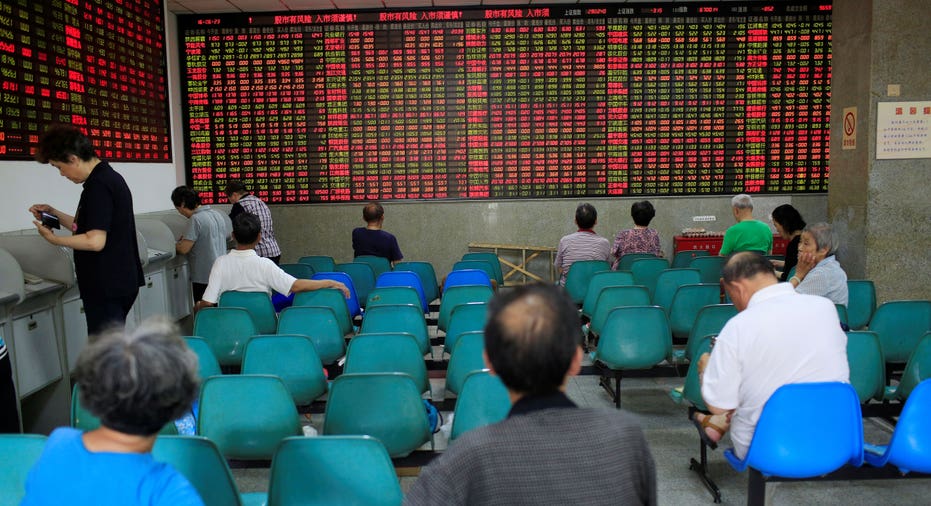Asia Shares Ease, Dollar Steadies After Fed-Led Losses

Asian stocks eased from a 19-month high on Thursday, while the dollar made an uneven recovery from losses suffered after Federal Reserve minutes indicated a cautious approach to raising U.S. interest rates.
MSCI's broadest index of Asia-Pacific shares outside Japan edged down almost 0.1 percent having jumped to its highest level on Wednesday since July 2015.
Japan's Nikkei slipped 0.35 percent, while Australian shares retreated 0.2 percent.
South Korean shares were flat after the central bank kept interest rates unchanged, at 1.25 percent, as expected, for an eighth straight month.
Overnight on Wall Street, the Dow Jones Industrial Average ended up almost 0.2 percent, its ninth straight record-close.
That optimism however, didn't flow through to other indexes, with the S&P 500 and the Nasdaq both closing about 0.1 percent lower.
The dollar edged higher as investors parsed the Fed's January meeting minutes, which said that it may be appropriate to raise rates again "fairly soon" should jobs and inflation data be in line with expectations.
Nonetheless, markets also took account of policymakers' uncertainty over a lack of clarity on President Donald Trump's economic program. Voting members generally saw only a "modest risk" of inflation increasing significantly and believed the Fed would have "ample time" to respond if it did.
"A look at the market’s reaction would suggest that the perception of the minutes was a relatively dovish one," Jingyi Pan, market strategist at IG in Singapore, wrote in a note. ""This is in comparison to hawkish expectations following Fed chair Janet Yellen’s address last week."
"Indeed, the discussion on fiscal policy did suggest that a portion of Fed members believe that the uncertainty could put the Fed off course for an early hike," she added.
The dollar index, which tracks the greenback against a basket of trade-weighted peers, added 0.15 percent to 101.37.
By late morning in Asia, the dollar stood at 113.19 yen, just 0.1 percent firmer having lost some of its early bounce following Wednesday's 0.7 percent tumble.
U.S. 10-year Treasury yields slipped to 2.4129 percent on Thursday from 2.418 percent at Wednesday's close. They touched a near-two-week low of 2.391 on Wednesday.
The euro was slightly lower $1.05535. On Wednesday, it fell below $1.05 for the first time in six weeks on concern anti-European Union candidate Marine Le Pen could win France's presidential election in May.
Those political worries abated somewhat after veteran centrist Francois Bayrou offered an alliance that could boost o independent candidate Emmanuel Macron in the election.
In commodities, oil prices gained following American Petroleum Institute data showing a surprise drop in U.S. crude stocks last week. Official data from the U.S. Department of Energy's Energy Information Administration is expected on Thursday.
U.S. crude added 0.9 percent to $54.08.
Global benchmark Brent crude also rose 0.9 percent to $56.33.
Despite the dollar's rise, the pullback in risk appetite allowed gold to retain Wednesday's modest gains. The precious metal was steady at $1,236.86 an ounce.
(Reporting by Nichola Saminather; Editing by Simon Cameron-Moore)



















